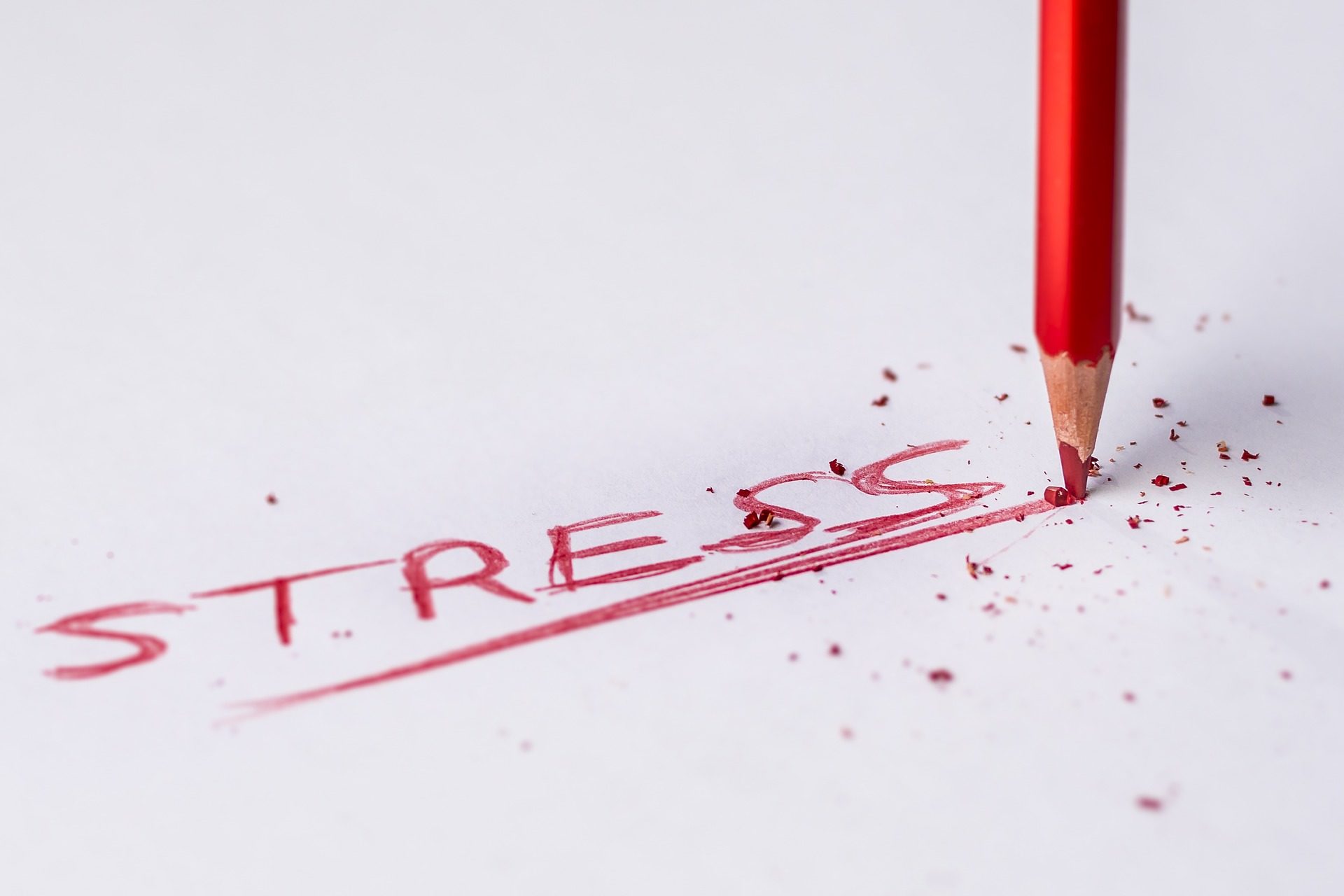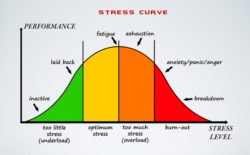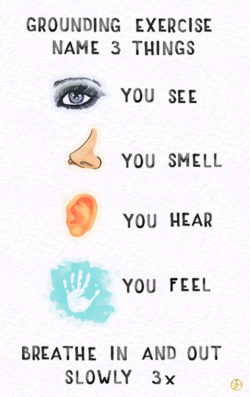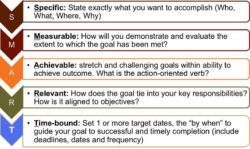
Top 10 tips for managing university stress
Written by Dr Kylie McDonagh, Clinical Psychologist/Student Counsellor at UNE Counselling and Psychological Services (CAPS)
Firstly, what is this thing we call STRESS?
Stress is a normal physiological response to a threatening or dangerous situation. Stress is our body’s state of increased arousal necessary to defend ourselves against this danger. Sometimes people refer to this response as the ‘Fight, Flight or Freeze’ response that can lead to changes in heart rate, blood pressure, increase breathing, muscle tension.
Once we have this system activated in our body you may notice other changes in your Physical State (e.g., sleep disturbance, appetite change, and headaches) your Emotions (e.g., irritability, anxiety, low mood, anger), Thoughts (trouble concentrating and focusing, negative self-talk) and Behaviour (avoiding tasks, procrastinating, drinking too much).

Stress can even be helpful at times such as to help us run and get out of a dangerous situation or a bit of adrenaline to prepare you for that important exam (see STRESS CURVE). Good stress allows planning, strategizing and enjoyment in life. However, sometimes unhelpful stress responses can be triggered by everyday normal activities or even just the thoughts in our head.

Being at University can be a particularly stressful time for students when they are often juggling a lot or responsibilities at the same time including work, study, family and financial commitments. This may be your first time away from family and friends and managing your own life completely. Homesickness can be a common stressor for students.
So What Can You Do If You Are Feeling Stressed?
PHYSICAL STRATEGIES
1. Breathing
Breathing plays an important part in maintaining and reducing anxiety/stress. When our breathing rate becomes elevated a number of physiological changes can begin to occur (e.g., dizziness, light-headiness, confusion, breathlessness, blurred vision, increase in heart rate, numbness and tingling in hands and muscles stiffen). When we continue to over breath you can often be left feeling exhausted on ‘on edge’ making you more likely to respond to any further stressful situations with more panic and anxiety.
To reduce feelings of stress and these physiological symptoms in the body try taking some slow deep breaths. Get into a comfortable position, inhale for 4 seconds, hold for 2 seconds, breath out for 6 seconds. Practice several times a day.
2. Exercise
Exercise increases your overall health and sense of well-being. Exercise reduces levels of the body’s stress hormones, such as adrenaline and cortisol. It also promotes a release of endorphins that help lift our mood. Aim for regular daily exercise, 30 minutes a day. Get your body moving, run, swim, walk, stretch, cycle, yoga, kickboxing, Tai Chi, dance and get out in nature. If you’re in Armidale, get in contact with Sport UNE to see what programs are available.
3. Food
Eat healthy, nutritious food and stay hydrated. Boost your memory with B group vitamins and folate (e.g. vegemite, peanut butter, leafy greens). Fuel the brain with glucose from low GI complex carbs such as wholegrain foods, oats, and peas. Relax the body with peppermint tea, and tryptophan amino acid in seeds and nuts for good sleep and mood.
4. Sleep
Sleep is the time when our body and mind repair and rejuvenate itself. Too little sleep or disrupted sleep can cause problems such as irritability, symptoms of depression and anxiety, exhaustion and decreased concentration (e.g., being able to focus less on lectures or during exams).
Research has indicated that sleep deprived individuals perform at just 9% of their well-rested peers.
Good sleep, on the other hand, has a positive impact on our stress hormones (i.e. the reduction of cortisol and adrenaline). Try to develop some good sleeping habits, such as aiming for between 8 and 10hrs sleep a night, and going to bed and getting up at a similar time each day. Try to reduce the use of technology such as phones and laptops before bed, use your bed for sleep rather than study, limit caffeine and energy drinks at night. Keeping your sleeping space cool can help you get a better sleep also. See Advocacy & Welfare’s 6 tips for sleep here.
THOUGHT STRATEGIES
5. Be aware of your inner critic, and challenge it.
Being stressed can sometimes lead to changes in our thoughts leading to more rigid and black and white type thinking. Be aware of your inner critic voice and notice if you are catastrophizing (thinking the worst-case scenario). Some examples of catastrophizing include, “I know I am going to fail this exam”. Black and White Thinking (thinking that something is completely good or bad and ignoring anything in between) is very similar, for example, “If I don’t get an H.D in this unit it means I am a failure and I may as well give up”.
Listening to these type of thoughts will lead to further stress and anxiety. Instead, try practicing positive thinking, for example, “I can do this”…”One step at a time”. Challenge your unhelpful thoughts by telling yourself things like, “Am I missing anything in this situation that disproves my thoughts?” such as “I have been studying the last few weeks I do know quite a lot of the material”.
Use positive rehearsal to reinforce helpful thoughts and visual yourself succeeding. Don’t forget to be kind to yourself.

6. Change your attitude.
Develop an attitude of acceptance, tolerance, flexibility, and optimism. Sometimes there are things that have occurred in the past are beyond your control. This may mean “letting go” of some worries if they are causing you ongoing stress.
7. Mindfulness.
A lot of people’s worries are often about events in the past or the future. It can be helpful to focus on being in the present. One way to do this is to use Mindfulness and Grounding Exercises.
Mindfulness involves being aware of the present moment in a calm and non-judgmental way. It involves just letting thoughts and emotions come and go in a compassionate and non-judgmental way, rather than fighting it. Focus on what is happening in the present to your body such as your breath or what your senses can see right now. Advocacy & Welfare wrote about strategies for mindfulness that don’t involve meditation, here.
BEHAVIOURAL STRATEGIES
8. Develop organisational and time management skills.
While being at university it is important to develop good time management and organisational skills. This will help you reach your goals in a much less stressful way.
Try creating a map of your time and identify how you currently use your 168hrs a week (i.e., sleep, work, social life, chores, cooking, eating, parenting relaxation time).
Most people sleep 56 hrs a week, leaving 112 hours of waking time. Once you have done your map or spreadsheet see how many hours are leftover for study commitments per week. Most units of study require at least 10 hours of study per week including private study and class time. Try using a wall planner for recording assessment tasks so you can stagger your time in case some are due close together. Also add important dates such as Census Date for withdrawing from units without academic penalty, exam dates and intensive school dates. Create a weekly schedule of what day classes and tutorial are on and block out study times regularly throughout the week.
We know that most concentration starts to wane after about 20 minutes, so think about having short study bursts followed by short 5 minute breaks.
Create an environment that promotes study, such as a separate workspace, with all resources close by and organised. Check your Moodle unit and emails regularly in case there are any changes you need to be aware of.
9. Set realistic and achievable goals.
Set realistic and achievable goals. The purpose of setting a goal is to achieve a specific outcome.
Think about the SMART acronym when setting goals. Is the goal Specific, Measureable, Achievable, Realistic and in what Time frame?

EMOTIONAL STRATEGIES
10. Connect
Connect with others and talk to someone you trust about how you are feeling. Chances are others may be feeling the same way.
UNE has a number of support services including UNE Counselling and Psychological Services. We offer face to face, phone, zoom appointments for study gym sessions or personal support. Access & Inclusion can support students with physical, mental health or carer requirements. UNE Life Advocacy and Welfare are great to chat to about study options during stressful times, and can point you in the right direction.
Things to Avoid
Sometimes some of our coping strategies can lead to unhealthy behaviours that can actually increase stress and anxiety.
Try to avoid drinking too much alcohol or drugs as a way of numbing emotions or avoiding dealing with problems. When people are stressed they can sometimes tend to avoid the issue (such as working on that essay) which leads to procrastination and further delays in meeting deadlines. Instead, make a plan and problem solve and ask for help if needed.

There is plenty of help here at UNE!
CAPS is just one section in a range of support services available to UNE students. For the A-Z of UNE support services, check out our blog here.
If difficult circumstances are affecting your study, you can contact us for assistance at advocacy@une.edu.au or on (02) 6773 3116. If you’re on campus, feel free to visit our office in the Arcade, to the north of Café Life. Whether it’s a quick chat, a referral to another part of UNE, or assistance drafting applications to UNE, we are here to help.
You’re never alone at UNE.


